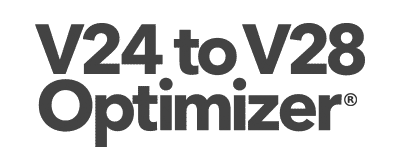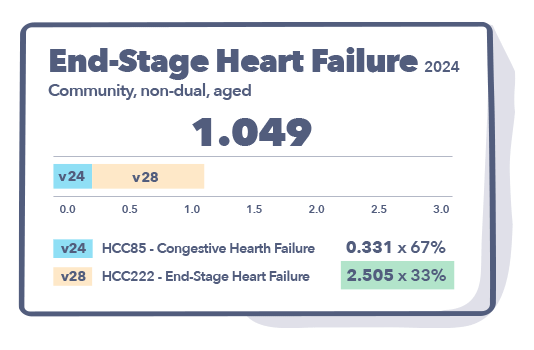CMS to Start Dropping Over 2k Risk Adjusted Codes in 2024
Healthcare is an industry that is constantly evolving to keep pace with advancements in technology and changing patient needs. Recently, the Centers for Medicare and Medicaid Services (CMS) made some significant changes to the CMS-Hierarchical Condition Categories (HCC) Coding for Risk Adjustment. Beginning in 2024, the new model reduces the number of risk-adjustable ICD codes by over 2,000 compared to Version 24. The new coding version is expected to have a highly disruptive impact on risk adjustment in healthcare. Now, why should we be bothered by this? Well, it is highly likely that this modification will lead to a reduction in the overall risk scores. In this blog post, we will explore the differences between Version 24 and Version 28 of the CMS-HCC Coding model and what these differences mean for the healthcare industry.
The most significant difference between Version 24 and Version 28 is the reduction in the number of risk-adjustable ICD codes. Version 24 had 7,320 ICD codes, while Version 28 has 4,958 codes. This means that Version 28 removes approximately 32% of the ICD codes present in Version 24. This reduction in codes will have a significant impact on how providers and payers approach risk adjustment.
The new coding model will put more emphasis on documenting chronic conditions. The 2019 CMS Call Letter outlined that the risk adjustment factor (RAF) calculation under the new version would increase the weight given to beneficiaries with complex chronic conditions. Documenting chronic conditions in medical records is critical for accurate risk adjustment. Providers will need to ensure that their documentation is complete and accurate to ensure patients receive the right level of care and to avoid financial penalties from payers.
The change in coding will also mean that payers will need to adopt new processes and technologies. The new coding model is expected to improve the accuracy of risk adjustment, but payers must invest in new systems capable of managing the data associated with these changes. Payers need to develop strategies to ensure their systems can absorb the changes effectively.
The new coding model will also affect risk adjustment scores and payments. When CMS reduces the number of codes in Version 28, there will be lower risk scores for beneficiaries. This change, in turn, means that there will be lower payments to providers. As a result, providers will need to focus more on chronic conditions documentation to increase risk scores and ensure that their revenue streams do not suffer.
The new CMS HCC Coding model (Version 28) represents a significant shift in risk adjustment for healthcare. The reduction in the number of risk-adjustable ICD codes will create significant challenges for providers and payers alike. To ensure they receive the right level of care and payment, providers must focus on documenting chronic conditions accurately. Payers must invest in new systems capable of managing the data associated with these changes. Finally, providers must be aware that the new coding model will affect risk adjustment scores and payments. As healthcare providers face these new challenges, it is essential to stay abreast of the changes in the industry and respond accordingly.
ForeSee Medical has proactively prepared for the upcoming healthcare changes with its AI-powered Risk Adjustment software, which now includes the V24 to V28 Optimizer®. This tool simplifies the complexities of both V24 and V28 HCC models, ensuring users are not only ready for the transition but are also positioned to thrive within it.
Transition with ease between the V24 and V28 frameworks
• Presentation of blended RAF scores (1/3 + 2/3)
• Each code is tagged to its corresponding V24 and V28 HCC model
• Recapture using both V24 and V28 models
For patients with a disease that maps to a v24 and v28 HCC, choose the most relevant ICD.
When V24 and V28 RAF scores for a set of ICD codes for the same disease are equivalent – select a code that maps to both models, this will facilitate recapture.
ForeSee Medical has the privilege of partnering with some of the nation's largest health systems and risk-bearing provider organizations. We would welcome the opportunity to showcase the value we can bring to your company.
Blog by: The ForeSee Medical Team







